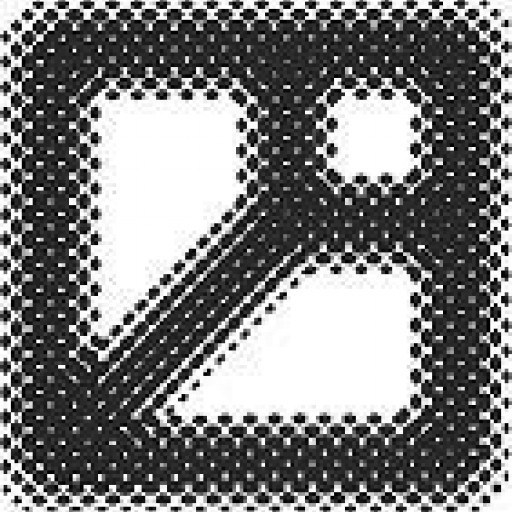Photos of university / #uni_duisburg_essen
The Bachelor's degree program in Structural Engineering at the University of Duisburg-Essen offers students a comprehensive education in the principles and practices involved in the design, analysis, and construction of various structural systems. This program is designed to provide a solid foundation in engineering sciences, combining theoretical knowledge with practical skills necessary for addressing real-world challenges in the construction and infrastructure sectors. Throughout the course of study, students are introduced to core disciplines such as mechanics, materials science, structural analysis, and construction management, ensuring a well-rounded understanding of how different elements come together to create safe, efficient, and sustainable structures.
The program emphasizes the importance of innovation and sustainability in modern engineering. Students learn to apply advanced computational methods and modern software tools for modeling and simulation of structures, enabling optimized and resilient designs. Practical training is a central component, with laboratory work, project work, and internships offered to give students hands-on experience in the field. The curriculum is designed to foster problem-solving skills, teamwork, and effective communication, skills that are essential for successful careers in the structural engineering industry.
The program also prepares students for responsible professional practice, including adherence to safety standards and environmental considerations. Graduates of the program are equipped to pursue careers in consulting firms, construction companies, governmental agencies, or to continue their education through master's programs in related specializations. With its combination of academic excellence and practical relevance, the Structural Engineering program at the University of Duisburg-Essen aims to develop highly qualified engineers capable of contributing to innovative and sustainable infrastructure development on a global scale.
Educational organisation
For all Bachelor's degrees together, the basic principles of engineering and science will be taught on a broad basis in the first year of study. This includes courses from the disciplines of mechanical engineering, material science, electrical engineering, computer science, and natural science. The courses will impart the necessary knowledge in engineering and science as well as different methods and approaches.In the subsequent semesters, the students will be taught in the following modules in addition to the core subjects:
Projects: In the context of a project, the students will work on a complex topic in a group, applying scientific methods. At the end of the project, the students will write up their findings and present their results.
Electives: The electives will give the students the possibility of choosing and deepening their own specialisations within the degree.
Non-technical subjects: The aim of the non-technical course is to deepen the general education of the students, and if necessary, to increase their linguistic competence as well as to strengthen their ability to work in teams or to give a presentation.
During their Bachelor's studies, students will have to participate in an industrial internship in a company outside the university. This industrial internship will have to be completed before the registration for the Bachelor's thesis. The industrial internship will supplement the degree in such a way that the students gain some practical experience that will enrich their theoretical knowledge. This will help to deepen the understanding of the lectures and will facilitate project work. The duration of the industrial internship will be 15 weeks. Nine weeks of the industrial internship should be completed before studies.
The Bachelor's thesis concludes the scientific education in every Bachelor's degree course within the academic ISE programme (International Studies in Engineering). It is used to show that a student is capable of dealing with a problem from the corresponding field of engineering sciences autonomously, using scientific methods and presenting the topic comprehensibly. The duration for the work on the Bachelor's thesis is three months.
After completing the Bachelor's degree, students will be able to choose to continue with a Master's degree as a specialisation of their former field of studies or discipline, or change to a Master's degree programme in a different engineering subject and thus aim for a double qualification.
Study abroad unit(s)
It is obligatory for German students to stay abroad for a period of three to six months.During this time, the students can do the following:
- participate in lectures at a foreign university and earn credits by passing the respective examinations
- work on their final thesis
- do their industrial internship at a company to complete the obligatory professional practical training
Internships
An industrial internship in a company is compulsory for all Bachelor's students. The entire 15 weeks of the industrial internship have to be finished before starting the final thesis.Forms of assessment
According to the examination regulations, the type and duration of the examination will be defined by the lecturer before the semester starts. Therefore, an examination can be a written test of 60 to 120 minutes or an oral examination of 30 to 60 minutes. The language of the examination is the same as the language of the lecture.Course objectives
Graduates will:1) master basic engineering and natural science principles and the methods and thinking behind them;
2) master basic specialist principles from the core construction disciplines of statics, solid construction, and steel and wood construction;
3) master basic specialist principles of substructure;
4) master basic specialist principles for assessing the physical and chemical properties of building materials;
5) master basic specialist principles for managing major construction projects considering legal and social aspects;
6) master basic specialist principles of environmental technology, especially hydraulics;
7) be able to pursue their preference for a commercial or academic career via their choice of electives and develop as independent lifelong learners;
8) benefit from an enhanced overall education with increased confidence in German or English, and profit from enhanced employability gained by learning skills in teamwork and communication;
9) gain initial construction industry experience and be in a position to apply technical knowledge, norms, and regulations to the planning, design, and operation of facilities;
10) gain experience in applying scientific methods to deal independently with problems from their chosen area of engineering within a specific time frame, and be able to present issues clearly.
Language requirements
Applicants must be able to demonstrate German and English language skills corresponding to Level B1 of the Common European Framework of Reference for Languages (CEFR).At the start of the programme, students must undergo placement tests in order to determine their knowledge in both languages and be placed in the appropriate courses. Students with a language certification from a qualified institute are exempt from sitting the placement test.
During the course of the ISE Bachelor's programme, students must work towards a level B2 certification in both German and English. Students must reach a B2 proficiency level by the time they register for the final thesis. In some individual cases, language courses are a required part of the programme.
Academic requirements
The qualification is met by a general higher education entrance qualification ("Abitur"), a subject-restricted higher education entrance qualification ("Fachhochschulreife"), or a foreign equivalent.The evidence of a college preparatory educational background or qualification from a school with a special focus on mathematics is required.
Applicants are also required to have knowledge of German and English at least on the level of B1 achieved on the Common European Framework of Reference for Languages (CEFR).
Enrolment fees
All students are required to pay a social contribution of about 300 EUR per semester. The social contribution includes a semester ticket covering public transport in North Rhine-Westphalia, subsidised meals in the canteen of the university, and other services.Costs of living
We recommend budgeting around 750 to 900 EUR per month for personal expenses.Job opportunities
Students may be employed as student assistants at institutes within the Department of Engineering as well as by affiliated research institutions. Companies in the region also offer similar jobs.Services and support for international students
The Support Center for (International) Engineering Students (SCIES) acts as a help desk for all study-related questions in the Department of Engineering. The mission of SCIES is to support all students at the Department of Engineering and to help them get the most out of their experience at the University of Duisburg-Essen. SCIES answers questions with regard to studies, helps in administrative matters, supports in finding accommodation, and is the first level of support for all of the students' questions.Accommodation
Accommodation is available through the Student Services Office or on the private market. Rent for a single room in a student residence is approx. 280 EUR.For more information, see: http://www.uni-due.de/scies/accommodation.shtml.










